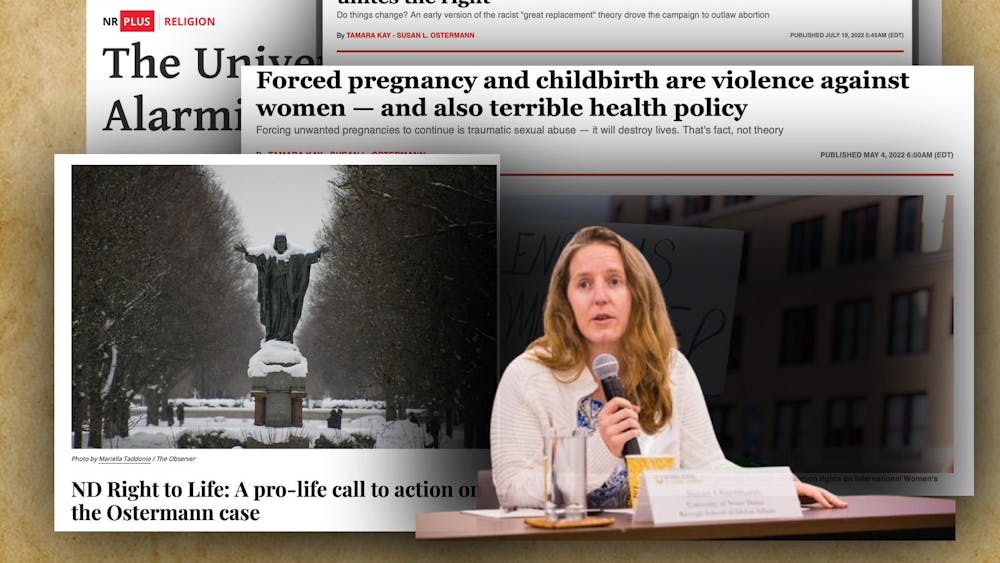Though my ancestors experienced segregation and great social injustices, I did not. But, that does not mean I cannot understand and feel strongly about their experiences as marginalized individuals. Events of the past still significantly affect the attitudes and experiences of all inhabitants of the United States, regardless of race, ethnicity, religion or wealth.
The same way that African American children are taught about their ancestors’ past enslavement and Jewish children are taught to remember the Holocaust, ethnic individuals of every origin are taught to remember tragic experiences of their families’ pasts as well. The fact that historically marginalized individuals of contemporary American society did not live through tragic times in history does not mean they are not affected by the social implications adopted in the past. Stereotypes and prejudices have origins in history, some are possibly justified while others stem from ignorant and naïve beliefs and practices held by oppressive societies of previous generations.
Suggesting one should forget what ancestral injustices have occurred less than a century ago has been a pretty popular opinion lately. Realize I am not blaming any young adult in this world for their ancestors’ misdeeds. Having heard the statement, “If I were alive during slavery, I would not be a slave owner” and rough forms of “Don’t blame me that my ancestors owned yours,” I feel I am in a position to challenge such beliefs. On the contrary, I am convinced any white male in the United States today would have been a slave owner in the past. It was a regular social occurrence, and those who did not follow the rules of society were most definitely stigmatized.
Still, it would be completely absurd and unfair to blame my White male friends for their great-great grandfathers’ past actions, just as it would be unfair to blame me or any other Catholic for the Crusades of decades past.
The actions and guilt of past oppressors should not fall on the shoulders of individuals in current American society. As people in positions of power in the world, it is the responsibility of these descendants to work toward the existence of an American better than pre-abolitionist America. As corny as it sounds, we must make this a better world for our children and their children to come.
Yes, we legally we are ensured equal rights. I can sit in the front of the bus. I can go to school with my male peers. I can succeed if I so choose, within reason, though. Equal rights do not mean equal opportunities in any way whatsoever. Just because slavery does not exist in current American society, there still exists racism and prejudices in a different form: mental and social slavery — if I may coin that as a concept. Politicians and the likeminded criticize urban populations for their inability to improve social status and economic wealth. But, how are we to improve when jails are populated with a higher percentage of the African-American male population than colleges are?
How can an American criticize the actions of oppressive regimes in other nations without first noting the actions of his or her own people? We urge others to aid the poor in other countries, but refuse to see the poverty and miscarrying of justice occurring in our own society.
I am currently participating in the Migrant Experience Seminar, and during our first meeting I gained more respect for the members of my class than I had in any other. These individuals want to learn. They want to experience the lives of those in America that lack the opportunities many take for granted. One girl in particular specifically stated she wants to be “less ignorant” of the lives of those living literally down the street from many of us, in that area of the city you don’t dare drive through without your doors locked. She admitted her ignorance pertaining to poverty and inequalities in the United States, and that is the first step to changing the course of the American society.
It is unfortunate, however, that it takes a seminar of this sort to educate students. But if this is what it takes to make a difference in society, I most certainly encourage it.
Katrina Linden is a sophomore English and Latino Studies major living in Lewis Hall. She can be contacted at
klinden1@nd.edu
The views expressed in this column are those of the author and not necessarily those of The Observer.
Equal rights, not opportunties
The views expressed in this column are those of the author and not necessarily those of The Observer.









